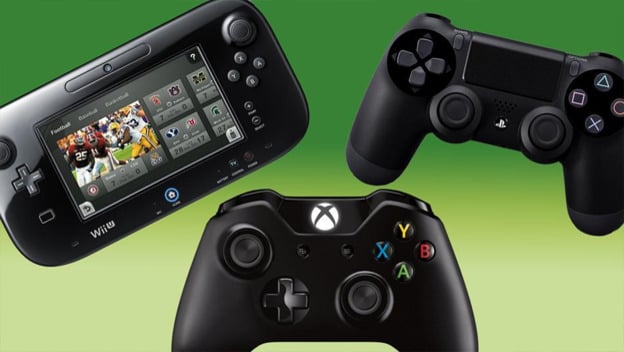With November just around the corner, there are a lot of gamers starting to save their pennies. The battle of the pre-orders is raging between the PlayStation 4 and Xbox One, with Sony’s new console edging ahead. Survival kits are being packed for the long launch-day lines, and gamers are brushing up on their “I’m too sick to come into work” spiel. Yup, it feels like a carbon copy of when the PS3 and Xbox 360 launched, which if you remember, wasn’t all that successful for either company in their respective release years. In fact, I’m more pessimistic this time around for a few reasons.
First and foremost, not all gamers (even some in the hardcore crowd) feel next-generation systems are needed right now. We heard the argument numerous times before Sony and Microsoft made the official announcements. Now granted, the PS3 and Xbox 360 are well beyond the typical lifespan of gaming systems, but they have internal room to grow. The original Xbox and PlayStation 2 had a pretty impregnable technical ceiling, where gamers and developers were all ready for the next level. Even now, we can see the vast change in technical quality of today’s games compared to when the current-gen systems launched over half a decade ago.
Now, there are a few big publishers like EA and Square Enix who want to push the boundaries and have the resources to do so. So yes, for enhanced particle effects and minute facial detailing, a whole new gaming system is necessary. But those types of games aren’t going to be cranked out every week after November’s console launches. Most of the highly anticipated launch titles such as Watch Dogs , Call of Duty: Ghosts , and Battlefield 4 are being produced for current-generation consoles as well. This presents two problems. First, gamers who are more interested in the games themselves rather than what console it’s played on (which is more than you’d think) will easily buy the PS3 or Xbox 360 copy rather than fork over $400 or $500 for a new system. Sony is trying to combat this by offering $10 digital upgrades from PS3 to PS4 on certain titles, but since this is a limited time offer, the company likely won’t see gamers on the fence cashing in on this deal. Secondly, the multiplatform games themselves won’t be that much higher quality on the next-gen consoles. It is more cost effective for game developers to upgrade textures and lighting effects than it is to build a game for next-gen and downgrade.
And I’d be remiss if I didn’t bring up the profit making many gamers are planning with their pre-orders. After the PS3s and Xbox 360s flew off the shelves with weeks before the next shipment, eBay was flooded with listings for well above the retail price, which desperate gamers would pay. It’s naive for anyone to think the exact same thing won’t happen again this November. The likely outcome for both the PS4 and Xbox One is that sales will in some respects mirror that of Nintendo’s Wii U, what with 2014 being a slow climb, and gamers awaiting an unlikely price drop or more exclusive next-gen games to pique their interest and convince them to take the plunge.

So where does the Wii U fit into all this? Well, the folks at Nintendo are on their own, and that’s exactly what they want. They are not in direct competition with Sony and Microsoft except when it comes to wooing indie developers. They have a decent holiday lineup with Super Mario 3D World leading way, as well as marquis third-party titles such as Batman: Arkham Origins and Assassin’s Creed IV: Black Flag giving Nintendo the nod (though I am saddened with the news of Donkey Kong Country: Tropical Freeze being delayed ). I do believe Nintendo needs a strong marketing push, even in the face of the PS4 and Xbox One launch, in order for the general gaming audience not to forget about the company completely.
Despite my gloomy post-holiday forecast, I still think gamers will be happy until the new year. Those who want a shiny, new next-generation console will have it, and those who simply want a healthy supply of AAA titles for their current systems will have it, and Nintendo fans will have some new Mario games to play. The problem is that everyone from gamers to publishers are too focused on November and not thinking beyond the new year and the long-lasting lull they may have to endure. I personally believe each company will eventually succeed, but we all must face the cold reality that the full swing of next generation of gaming is still a few years away.
